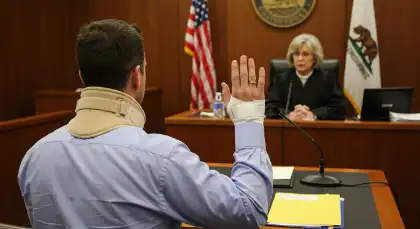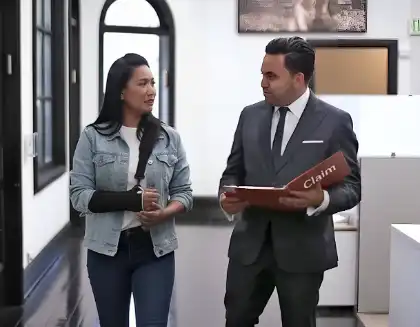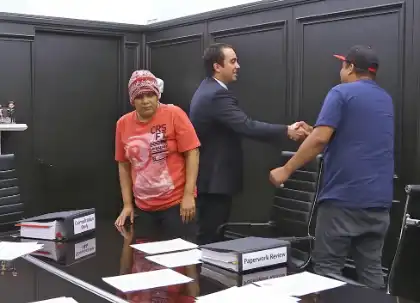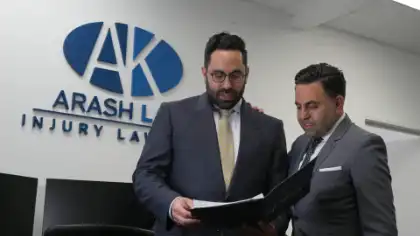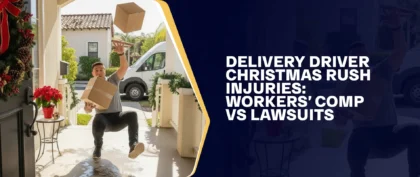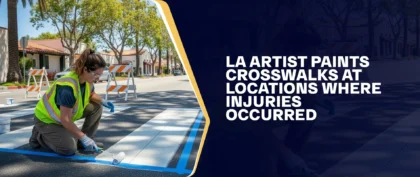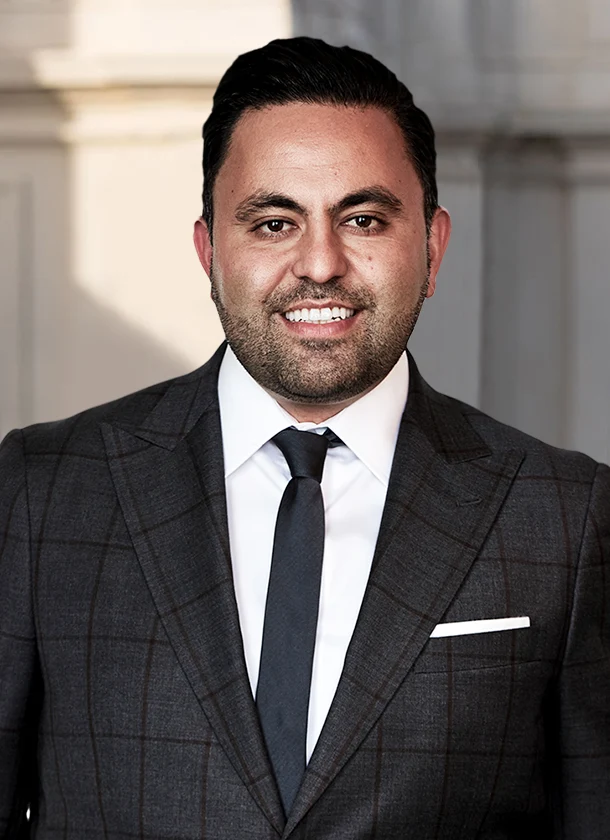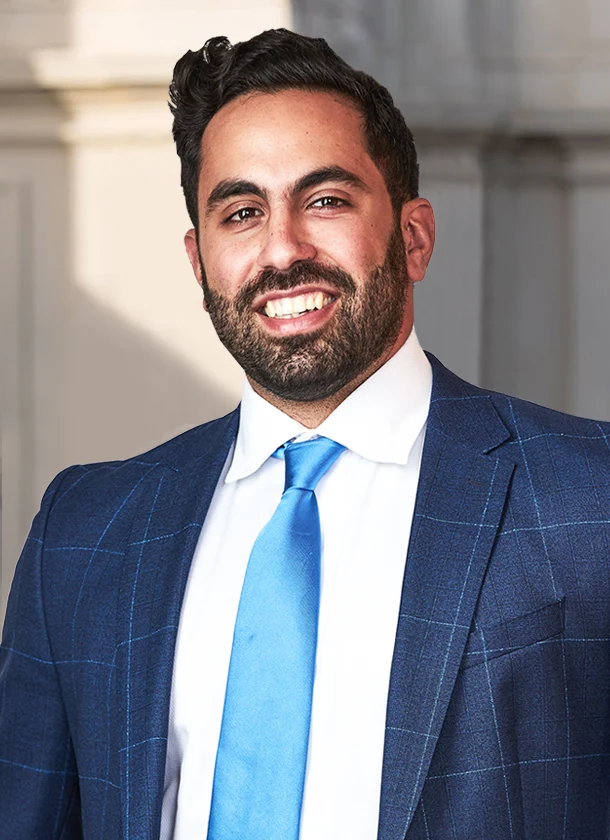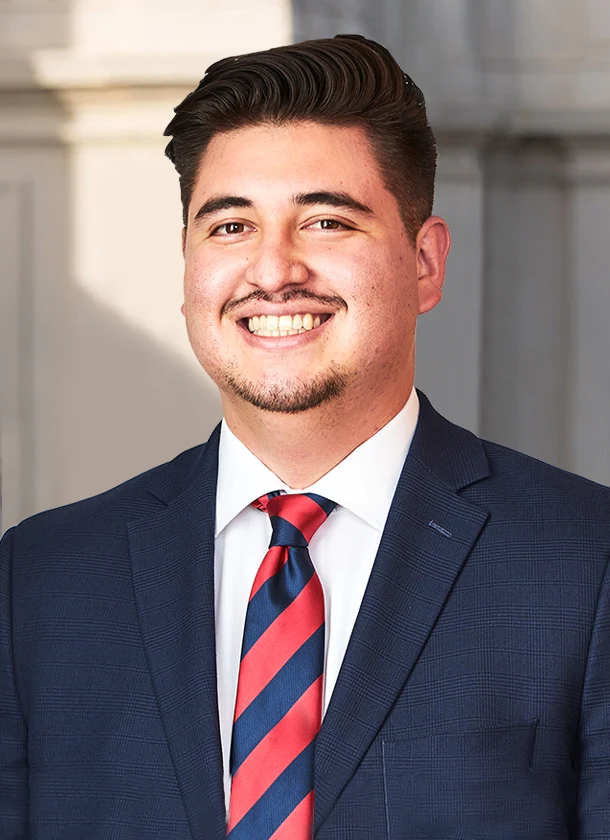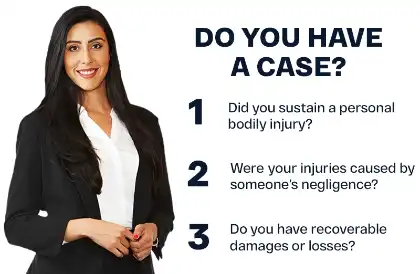TL;DR: Yes, you can file a personal injury claim without a lawyer through a process called self-representation. However, you’ll be responsible for managing all legal tasks yourself, from meeting court deadlines and submitting documents to negotiating with insurance companies. Many claimants risk undervaluing their case or missing necessary steps without professional assistance, especially when a case involves severe injuries or disputed fault.
Table of Contents
Individuals generally have the legal right to represent themselves in a personal injury case. This is referred to as self-representation, or, in legal terms, proceeding pro se. It means you handle every stage of your claim independently. You will be responsible for gathering and presenting evidence, filing the claim, and managing communications with insurers or other parties involved in the process. Some claimants may even take their cases to court without the assistance of a lawyer. While some people choose this route to save on legal fees or stay in control, it may present challenges that can make the process difficult to navigate.
Some injured individuals attempt to save money by handling their own claim. However, personal injury law involves strict rules, tight deadlines, and difficult negotiations with insurance adjusters. Even small procedural mistakes or missed timelines can significantly impact your right to seek compensation.
Here are key points to remember if you want to sue for personal injury without a lawyer:
- You have the right to represent yourself in personal injury cases.
- You must meet deadlines and follow court procedures.
- You collect and present all evidence yourself.
- Recoverable damages may include financial and non-financial losses.
- Risks include undervaluing claims, missing deadlines, and insurance tactics.
- Alternatives include limited-scope legal help or small claims court.
If you’re wondering what an attorney can do for you after an injury, call AK Law at (888) 488-1391 to schedule a free one-on-one initial consultation with no obligation. Offering legal assistance to injured parties in California, our personal injury lawyers have years of experience handling a wide range of accident claims.
Can I Represent Myself In A Personal Injury Case?
“Pro se” is a Latin term meaning “on one’s own behalf.” In U.S. courts, this means you represent yourself in a lawsuit without hiring a lawyer. Pro se litigants can appear in both civil and criminal cases, whether as plaintiffs (who file the case) or defendants (who defend against a case).
The right to represent yourself is protected and has existed since the early days of the U.S. legal system. However, just because you have the right to represent yourself doesn’t necessarily mean it’s the best choice, especially in complex personal injury claims. Some claimants simply want to have full control over their case, handling negotiations or presenting their arguments as they see fit.
Other accident victims consider representing themselves in a personal injury case to save on attorney fees. After all, it’s common knowledge that some lawyers charge on an hourly basis, which sounds intimidating when faced with high medical bills. Most injury attorneys, however, work on a contingency fee basis. Instead of getting paid up front, they take a percentage of your settlement as payment. Some attorneys also require clients to cover certain case-related expenses, such as filing fees, expert reviews, or record requests, even if the case does not result in compensation.
It’s an appealing idea, but it comes with some serious risks, such as:
- Undervaluing your case.
- Missing crucial deadlines.
- Failing to gather the right evidence to back up your story.
Personal injury cases require a thorough understanding of legal principles. Even if you’re confident about your case, there’s the challenge of navigating the maze of legal jargon, court procedures, and the tactics of the other party’s legal team.
So, while representing yourself may seem like a way to keep control or cut costs, it’s important to weigh these risks carefully. In the long run, a skilled personal injury lawyer can potentially help you steer clear of mistakes that could cost you more than attorney fees ever would.
Why Personal Injury Victims Choose To Represent Themselves
Some people decide to handle their personal injury claim instead of hiring a lawyer. The reasons often come down to money, control, or personal preference:
- Lower Legal Fees — Filing a claim also costs money, but representing yourself means you don’t need to pay attorney fees.
- Control Over Your Case — You make all decisions about strategy, timing, and settlement offers without relying on an attorney’s advice.
- Knowledge Gained — Representing yourself can teach you about legal procedures, negotiation, and evidence rules, which may help you in the future.
- Perceived Simplicity — If the case looks straightforward, such as a minor accident with clear fault, you may feel confident enough to manage it alone.
- Distrust of Lawyers — Some victims prefer not to involve attorneys because they believe they can better present their own story. It could also stem from past negative experiences.
- Small Claims Situations — When the damages are limited and fit within the jurisdiction of small claims court, handling the case alone may seem practical.
While these reasons are understandable, it’s important to remember that representing yourself often comes with unexpected challenges. Before deciding to represent yourself, it’s crucial to carefully weigh the potential benefits against the risks involved.
What To Do If You’re Considering Self-Representation
Representing yourself requires careful preparation and a solid understanding of how to file a personal injury claim in your state. While this approach may seem like a way to save money, it also means taking full responsibility for the entire claims process. If you choose to move forward on your own, these steps can help you stay organized and informed:
- Research the Law Carefully — Learn your state’s laws, filing deadlines, and claim requirements before you start.
- Each state sets its filing timelines, and government claims often have shorter windows.
- In California, victims generally have two years to file a lawsuit; however, the time limit varies depending on the specific type of claim.
If your case involves a rideshare company, such as Uber or Lyft, you may wonder, ‘Can a rideshare passenger sue Uber or Lyft?‘ In these cases, it’s important to understand the rules surrounding the rideshare companies’ insurance policies and whether you can sue Uber or Lyft for compensation as a passenger.
- Prepare Evidence Thoroughly — Gather detailed documentation to support your case and present your side clearly and effectively.
- Organize medical and accident records by creating labeled folders or digital files for medical bills, reports, and accident documentation.
- Create a timeline to track key dates, including the incident, treatments, work absences, and ongoing symptoms.
- Weigh the Risks vs. Benefits — Consider whether the cost savings of self-representation outweigh the potential drawbacks.
- Be prepared to spend significant time researching, drafting, and following up with insurers or courts.
- You may receive a smaller settlement or miss opportunities for compensation.
Risks Of Suing For Personal Injury Without Legal Help
Pursuing a personal injury case without legal assistance can expose you to serious risks that may reduce or even eliminate your chance to seek compensation. Common risks include:
Lack Of Legal Knowledge
Personal injury law has strict rules, complex legal terminology, and deadlines that can easily lead to mistakes if you’re unfamiliar with the system. Even a minor error could stop your claim from progressing.
- Statutes of Limitations — These are strict deadlines. They set how long you have to file a lawsuit. In California, you generally have two years from the date of the injury to file a personal injury case.
Exceptions apply:- Minors — Courts may pause the two-year timeline until the minor victim reaches the age of 18.
- Government Claims — These often have shorter deadlines, sometimes just a few months.
- Missing the deadline usually means losing your right to compensation.
- Regulations and Procedures — Courts follow strict rules at different stages of a personal injury case. You must:
- File the documents in the correct court and include all necessary paperwork.
- Pay fees and meet response deadlines.
Filing in the wrong court, missing a step, or submitting paperwork late can cause delays or dismissal.
- Complex Legal Language — Terms like discovery, motions, and depositions are confusing if you don’t have legal training. Each stage has requirements:
- Discovery — Exchanging evidence and documents.
- Motions — Asking the court to take specific actions.
- Depositions — Sworn statements from witnesses.
Without understanding these rules, you risk losing your claim before it reaches trial. That’s why many people discover that handling a case alone presents significant challenges.
Undervaluing Or Losing Your Claim
You might focus only on obvious costs, but personal injury cases often include more expenses than expected. Depending on the specifics of your case, these are the types of damages you can pursue in a personal injury case:
- Economic Damages — These are direct financial losses that can be calculated and documented.
- Medical Expenses
- Ongoing Medical Care
- Lost Income
- Future Wage Losses
- Property Damage
- Transportation Costs
- Home or Vehicle Modifications
- Out-of-Pocket Expenses
- Non-Economic Damages — These cover the ways an injury affects your daily life and well-being. They are harder to calculate than financial losses.
- Pain and Suffering
- Mental Distress
- Loss of Enjoyment of Life
- Emotional Trauma
- Disfigurement or Scarring
- Loss of Consortium
- Reduced Quality of Life
When you represent yourself, you might undervalue your case or overlook important damages. A personal injury lawyer can help you identify all your losses and organize evidence to support your claim.
Potential Case Disputes
Dealing with disputes over your claims can be challenging when you represent yourself. Insurance companies, for example, handle claims every day and follow processes you may not understand. Some common difficulties you might encounter include:
- Lowball Offers — You may receive quick settlement offers that are much lower than your case’s true value. Once you accept, you typically cannot request additional compensation, even if your medical bills increase later.
- Claim Denial Strategies — There’s a chance that your claim would be denied outright. Denials can occur for various reasons, including missing paperwork or insufficient evidence.
- “Stalling Out” Claims — The claims process may get delayed for months without resolution. Without a lawyer to push for action, the other party can drag out negotiations until your filing deadline passes or you grow tired of waiting and accept a low offer.
You’re not required to hire a personal injury attorney. However, a lawyer can help you understand how to push back against disputes in your case and explore options for pursuing compensation.
Evidentiary Challenges
You must gather and present evidence to support your claim. Types of proof include:
- Medical records and treatment reports.
- Police reports.
- Eyewitness statements and expert testimony.
- Photos or videos of the scene.
- Receipts, bills, or phone records.
Gathering and organizing evidence takes time and effort. You also need to know what proof courts and insurance companies accept.
Before representing yourself, ask whether you can manage these tasks alone. Experienced accident lawyers can help you present proper evidence and avoid mistakes that could damage your claim.
Alternatives To Hiring A Personal Injury Lawyer
There are alternative options that may give you partial support or a simpler process if you don’t want to hire a lawyer for your entire case. The following approaches can help in certain situations, though they may not fit every claim:
- Limited-Scope Representation — You can hire a lawyer to work on a part of your case instead of full representation. Examples include:
- Consultation Only — An attorney can provide strategy checks, case valuation, and negotiation tips.
- Reviewing Paperwork — They can examine demand letters, releases, or settlement agreements before you sign.
- Strategy Sessions — They can assess liability, calculate damages, and evaluate the timing of your claim.
- Mediation or Arbitration — A neutral person can help resolve disputes faster than traditional courts:
- Less Formal — Mediation or arbitration is usually faster, more private, and less rigid than courtroom litigation.
- Binding vs. Non-Binding — In binding arbitration, you cannot appeal the decision. In mediation, both sides must agree to any settlement.
- Small Claims Court — You can use small claims court when your damages don’t exceed your state’s limit. In California, you can file small claims for cases up to $12,500 with simple documentation and fewer formal procedures.
These alternatives can be helpful in certain situations. However, some personal injury claims can involve higher damages and complicated procedures. Some individuals who have suffered injuries choose to have full legal representation when the outcome may significantly impact their long-term financial or medical needs.
Why Hiring A Personal Injury Lawyer May Be Beneficial
Research in the Northern District of California showed that 56% of self-represented litigants lost at the preliminary motion to dismiss stage. Many missed filing deadlines and misunderstood court procedures. They also struggled to apply legal concepts like precedent and relevance. Precedent involves relying on past court decisions to guide future rulings on similar cases. Meanwhile, relevance establishes a logical link between the evidence and the facts during a trial.
These findings highlight how complex even “simple” cases can become without proper legal guidance.
Not every case requires full representation, but having a lawyer can be advantageous. Here are some of the reasons why working with a personal injury attorney can be valuable:
- Knowledge of the Law — Attorneys understand statutes, evidence rules, and court procedures. They apply the law to your specific situation and guide you through each stage.
- Case Valuation — Attorneys calculate the value of your claim, including current and future damages.
- Experience in Multiple Case Types — Personal injury lawyers handle many types of cases, including:
Understanding what a car accident lawyer does, for example, can give you an idea of how hiring one can be beneficial to your case. Their experience enables car accident lawyers to identify patterns, anticipate challenges, and develop strategies tailored to your case.
- Premises Liability Cases
- Workplace Accidents
- Wrongful Deaths
- Negotiating with Insurance Companies — Having a personal injury lawyer involved can affect how insurance companies handle claims. Here are some of the things an attorney can do:
- Handle all communications, track deadlines, and push for timely responses.
- Respond to low settlement offers and challenge arguments about preexisting conditions.
- Document non-economic damages to support your claim.
- Contingency Fee Basis — Many personal injury attorneys work on a contingency fee basis, meaning:
- You don’t pay attorney fees up front.
- The attorney’s fee is a percentage of your settlement or award.
- There may be additional costs involved in the case, and some of these expenses can still be your responsibility even if the claim doesn’t lead to a recovery.
- An attorney will explain this fee structure to you, so you know what to expect.
Note: Hiring an injury lawyer doesn’t eliminate all risks. However, you gain access to legal knowledge, resources, and support that guide you as you pursue compensation.
When To Consider Hiring A Personal Injury Attorney
Many accident victims wonder, “When should I see a personal injury lawyer?” The answer often depends on how severe your injuries are, how complex the claim is, and whether liability is being disputed. Some minor claims may be manageable on your own. However, consulting a lawyer as soon as possible can be helpful with your claim.
You may need to work with a personal injury attorney when:
- Your injuries need hospitalization, surgery, or long-term care.
- Liability for the accident is unclear or contested.
- Insurance companies delay or deny your claim.
- The settlement offer seems too low to cover your losses.
- Several parties, including insurance companies, are involved.
- Filing deadlines or legal procedures feel confusing.
- Managing paperwork and negotiations is too much for you to handle.
Furthermore, if your injury involves corporate negligence, understanding your options for suing a company for putting you in danger may require dedicated legal support.
If you’re wondering whether you need a personal injury lawyer, weighing the benefits and risks helps. Seeking free accident lawyer advice to understand your legal rights, explore your options, and make informed decisions can be beneficial.
FAQs About Suing Without A Lawyer
Below are quick answers to common questions people have when considering handling a personal injury claim independently. See our Frequently Asked Legal Questions page for more legal guidance and answers to many other questions.
Can I Sue For Personal Injury Without A Lawyer?
Yes. This is called self-representation. However, you take on every responsibility that a lawyer would typically handle, including:
- Filing paperwork and meeting deadlines.
- Collecting and organizing evidence.
- Calculating damages and losses.
- Negotiating with insurance companies.
- Presenting your case in court.
You are not required to hire a lawyer, but personal injury cases can be complex and challenging. A brief consultation with an attorney helps you understand the risks and make informed decisions before representing yourself in court.
What Should I Consider Before Deciding?
Before choosing to represent yourself, think about whether you can manage the key demands of a personal injury case:
- Handling paperwork accurately and meeting strict deadlines.
- Speaking confidently in court and remaining calm under pressure.
- Gathering documents and preparing witnesses.
- Spending time researching laws, rules, and procedures.
- Facing an opposing party that may already have a lawyer.
If you’re unsure about these responsibilities, seeking legal guidance early is often a helpful step. Understanding how long you have to contact a lawyer after an accident can help you avoid missing critical deadlines and give you enough time to decide whether legal representation is right for you.
What If The Other Party Blames Me?
If the other side claims you caused or contributed to the accident, it can affect the outcome of your case. Many states, including California, use pure comparative negligence, which reduces compensation based on your share of fault. Understand these:
- You can still recover damages even if the court finds you mostly at fault.
- Your compensation is reduced by the share of fault assigned to you.
- You need strong evidence to lower the percentage of fault assigned to you.
If there is a dispute over liability, it’s important to understand comparative negligence before deciding how to proceed.
What’s The Difference Between Small Claims And Limited Civil Claims?
If you plan to sue for $12,500 or less (or $6,250 or less if you are a business entity), you can file a small claims case or a limited civil case in California. Each type has its own distinct rules, costs, and procedures. Choosing the right one depends on your situation and the complexity of your claim.
Here’s a summary of the main differences:
| Difference | Small Claims | Limited Civil |
| Lawyers | You cannot have a lawyer represent you. | You can hire a lawyer. You must pay the attorney’s fees and follow all court procedures. |
| Costs | Lower filing fees, usually up to $100. | Filing fees typically start at around $225 and increase based on the complexity of the case. |
| Process Complexity | Informal rules and simpler procedures. | You must follow formal court rules and evidence requirements, which makes the process more complex and time-consuming. |
| Timeframe for Decision | Usually resolved in about 3 months. | Cases can take up to a year or longer to complete. |
| Appeals | Plaintiffs cannot appeal. Defendants cannot appeal counterclaims. | Either side can appeal. |
| Number of Lawsuits | You can’t file more than two cases a year for over $2,500 each. | No limit on the number of lawsuits. |
| Court Fees and Costs | If you win, the court can order the losing side to pay your court fees and costs. However, you may have to collect the payment yourself. | The court can order the losing party to pay court and attorney fees. If you could have used small claims court but chose not to, the judge may not order the losing side to pay these costs. |
| Serving a Defendant Outside California | The defendant must usually be served within California, with few exceptions. | You can serve a defendant outside the state. |
What Are The Types Of Cases That Can Be Resolved Without A Lawyer?
You might be wondering, “Do I need a personal injury lawyer for my claim?” Here are examples of claims that may be manageable without a lawyer:
- Small fender-benders with apparent fault and minimal vehicle damage.
- Cases involving minor injuries and straightforward evidence.
- Disputes that are limited to repair costs or replacement value without bodily injury.
- Suing for minor dog bite injuries may not require an attorney.
These claims are generally low-risk and easier to resolve. However, problems can develop if injuries worsen, fault becomes disputed, or the insurance company refuses to pay. A personal injury attorney can help protect your rights and strengthen your claim.
Consider Filing Your Personal Injury Claim With Legal Representation
Handling a claim on your own can be difficult. Legal support offers structure and guidance. Injury attorneys at the AK Law Firm can help you stay on track. They can:
- Confirm deadlines and filing requirements.
- Gather medical records, bills, and accident reports.
- Document your injuries and daily impact.
- Assess liability and insurance coverage.
You can get help organizing evidence, responding to low offers, and, if necessary, taking your case to court.
If you’re uncertain about representing yourself, a brief consultation with a personal injury lawyer helps you weigh your options. Call us at (888) 488-1391 or complete our “Do I Have A Case?” form for a free case evaluation.

